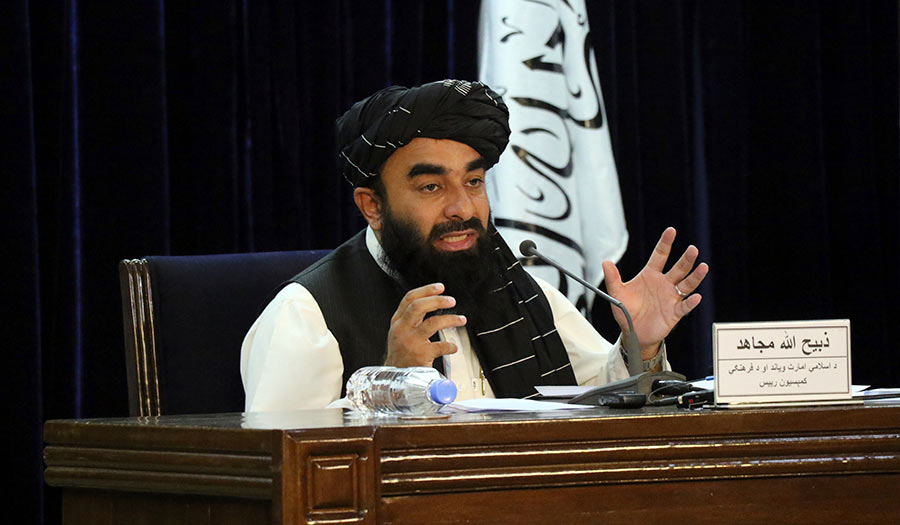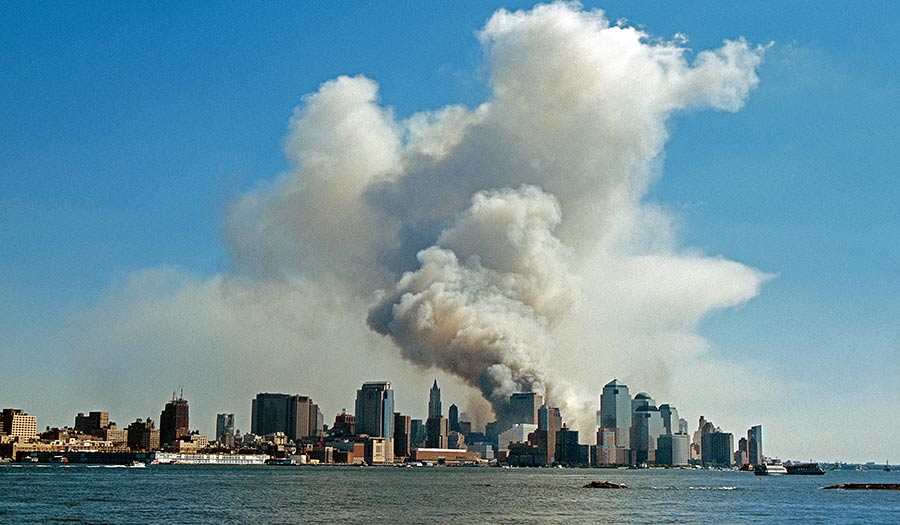 AP/Muhammad Farooq
AP/Muhammad Farooq
World News Desk
Learn the why behind the headlines.
Subscribe to the Real Truth for FREE news and analysis.
Subscribe NowKABUL, Afghanistan (AP) – The Taliban on Tuesday announced an interim government for Afghanistan stacked with veterans of their hard-line rule from the 1990s and the 20-year battle against the U.S.-led coalition, a move that seems unlikely to win the international support the new leaders desperately need to avoid an economic meltdown.
Appointed to the key post of interior minister was Sirajuddin Haqqani, who is on the FBI’s most-wanted list with a $5 million bounty on his head and is believed to still be holding at least one American hostage. He headed the feared Haqqani network that is blamed for many deadly attacks and kidnappings.
The announcement came hours after Taliban fired their guns into the air to disperse protesters in the capital of Kabul and arrested several journalists, the second time in less than a week that heavy-handed tactics were used to break up a demonstration.
Drawn mostly from Afghanistan’s dominant Pashtun ethnic group, the Cabinet’s lack of representation from other ethnic groups also seems certain to hobble its support from abroad.
As much as 80 percent of Afghanistan’s budget comes from the international community, and a long-running economic crisis has worsened in recent months. Near daily flights from Qatar bring in humanitarian aid, but the needs are massive, and the Taliban can hardly afford isolation.
In announcing the Cabinet, Taliban spokesman Zabihullah Mujahid emphasized that the appointments were temporary. He did not say how long they would serve and what would be the catalyst for a change.
Since taking over Afghanistan in mid-August after U.S. troops withdrew, the Taliban have shown no indications they will hold elections.
The U.S. State Department in a statement expressed concern that the Cabinet included only Taliban, no women and personalities with a troubling track record, but said the new administration would be judged by its actions. The carefully worded statement noted the Cabinet was interim, but said the Taliban would be held to their promise to give safe passage to both foreign nationals and Afghans, with proper travel documents, and ensure Afghan soil would not be used as to harm another.
“The world is watching closely,” the statement said.
The interim prime minister, Mullah Hasan Akhund, also headed the Taliban government in Kabul during the last years of its rule. Mullah Abdul Ghani Baradar, who had led talks with the U.S. and signed the deal that led to the withdrawal, will be one of two deputies to Mr. Akhund.
A policy statement accompanying the Cabinet announcement sought to allay fears of Afghanistan’s neighbors and the rest of the world.
“Our message to our neighbors, the region and the world is that Afghanistan’s soil will not be used against the security of any other country,” the statement said.
It urged foreign diplomats, embassies, consulates and humanitarian organizations to return to Afghanistan. “Their presence is the need of our country,” it said.
The statement spoke of protecting the rights of minorities and the underprivileged, and it promised education “to all countrymen within the framework of Sharia.”
Abdul Salam Hanafi, an ethnic Uzbek, was named as second deputy to Hasan Akhund. A long-time Taliban member, he is unlikely to satisfy demands for inclusivity and minority representation.
Besides Haqqani as head of the police, the other top security post of defense minister went to Mullah Mohammad Yaqoob, the son of Taliban founder and near mythic figure Mullah Mohammad Omar.
The Haqqani network, which dominates most of eastern Afghanistan, has been blamed for dramatic attacks in Kabul in the past two decades and for orchestrating kidnappings, often of Americans. Washington believes it still holds Mark Frerichs, a civilian contractor, who was abducted in January 2020 and has not been heard from since.
The new foreign minister will be Amir Khan Muttaqi, another prominent figure from the Taliban’s last time in power. He faces a difficult task, given the Cabinet’s lack of diversity.
The Cabinet selection defied the many voices that had urged inclusivity and moderation. Instead, it seemed to be a bow to the Taliban’s tens of thousands of fighters, who would have struggled to accept figures from previous governments that they see as corrupt and that they believe they were called upon to oust.
“The fighters made the sacrifices…They are the decision makers, not the politicians,” said analyst and author Fazelminallah Qazizai, who has written extensively about the Taliban.
- Real Truth Magazine Articles
- SOCIETY & LIFESTYLES
 9/11: Remembering What Was Lost
9/11: Remembering What Was Lost


